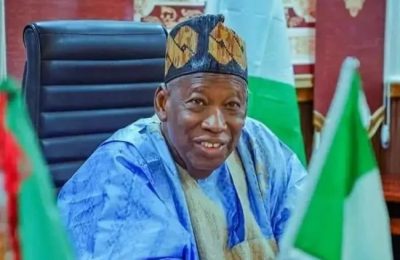
The Federal Ministry of Housing and Urban Development said its collaboration with the World Bank Group towards conducting a National Land Documentation and Titling Programme would unlock $300bn dead capital.
Speaking at the Workshop Nigerian Livable Cities organised by the ministry in collaboration with the World Bank, Minister of Housing and Urban Development, Arc. Ahmed Musa Dangiwa, said the move has become necessary to explore the potential of land as an economic asset which is yet to be fully tapped by the country.

The Nigeria Urban Livability and Mobility Programmatic Analytics and Advisory Services (ULM PASA) was launched by the World Bank to provide the Federal and State governments with technical support to improve the design and implementation of development policies and programs in selected Nigerian cities to enhance their livability, competitiveness and resilience.
The event, held at the Abuja Continental Hotel, was aimed at fostering understanding and mapping out modalities towards the successful implementation of the World Bank’s Urban Livability and Mobility programme in Nigeria.
“It is a comprehensive initiative that encompasses sub-programs that are very important to us. This includes housing and land management, urban services delivery, climate change action, urban management and finance, and transportation,” Dangiwa noted.
In the area of land, he deferred to statistics which show that less than 10% of land in Nigeria is registered and has titles. «As a result, landowners cannot easily leverage land as an economic asset. This is sad and unfortunate. As part of our land reforms we are exploring a partnership with the World Bank towards the implementation of a National Land Registration and Titling Programme.
“Through this programme, we aim to partner with State Governments towards improving land formalisation from less than 10% to 50% in the next ten years. This is critical to unlocking over $300bn in dead capital.
“We have already worked on a draft framework for the programme and I have directed the Ministry’s focal persons and Consultant to share with the World Bank Group so we can begin the process towards adoption and implementation,” he said.
He added that the programme is an important component in the ministry›s land reforms strategy and will complement the ministry’s plans to set up a National Land Commission to operationalize the Land Use Act.
To this end, the minister said: “The workshop provides a platform to share knowledge, exchange ideas, and forge partnerships that will propel our cities towards sustainable, inclusive and resilient growth. We must harness the power of collaboration and leverage the expertise and experience of the World Bank to develop innovative solutions that address the multifaceted problems facing our cities.”
Dangiwa took out time to reel out the efforts of the Federal Government towards developing livable and sustainable cities, including the Renewed Hope Cities and Estates programme which aims to deliver 50,000 housing units in the first phase.
He explained: “Our cities, once strongholds of economic growth and social progress, are now grappling with an array of complexities: rapid urbanization, infrastructure deficits, environmental degradation, climate change, housing deficit, poor service delivery and social inequality. These challenges, while daunting, also present immense opportunities for innovation and transformation.”
Accordingly, the minister stated also that establishing new cities and estates provides an opportunity for deliberate planning and designing of urban spaces that are not only beautiful in addition to landscape, but also promote efficiency and sustainability.
READ ALSO: No going back on planned protest — Arewa youth group







